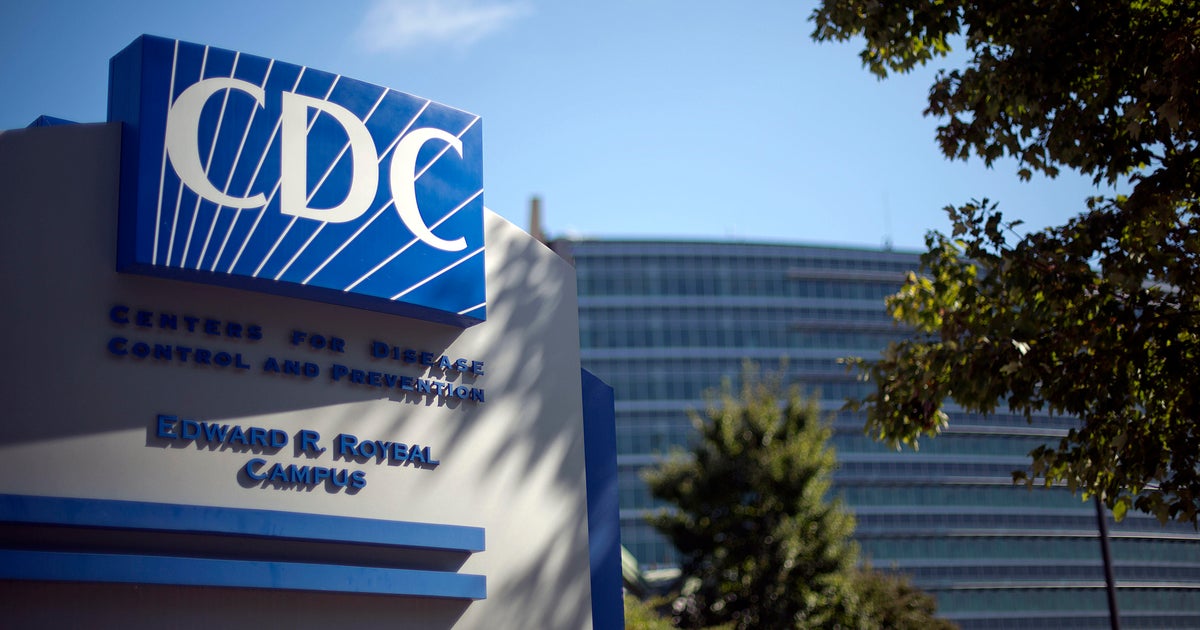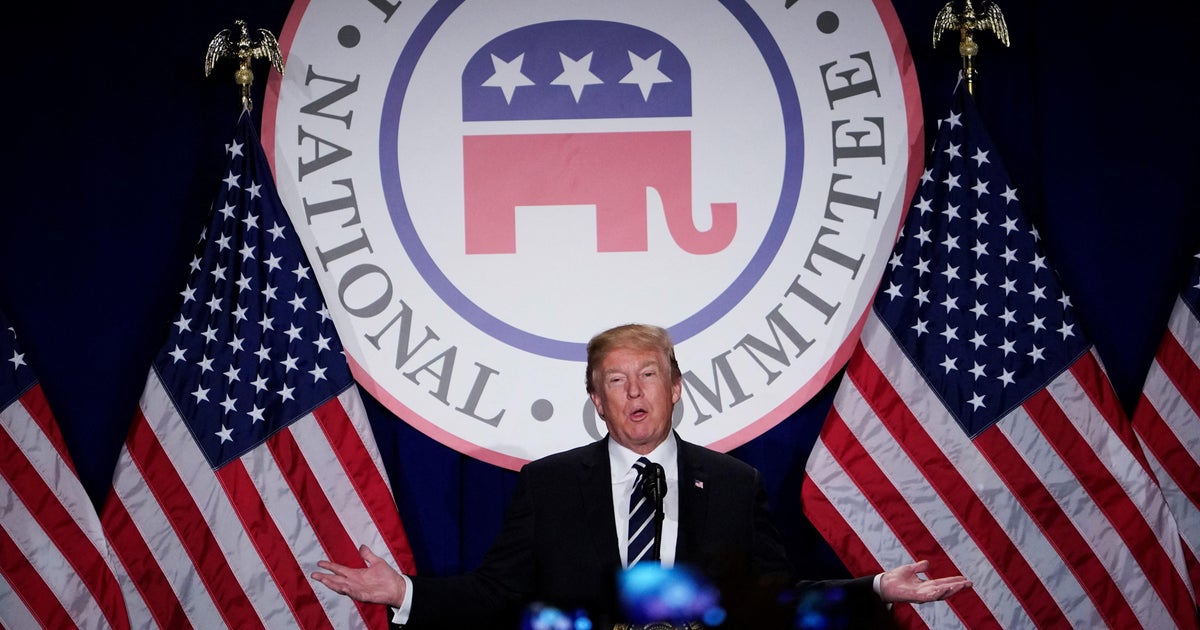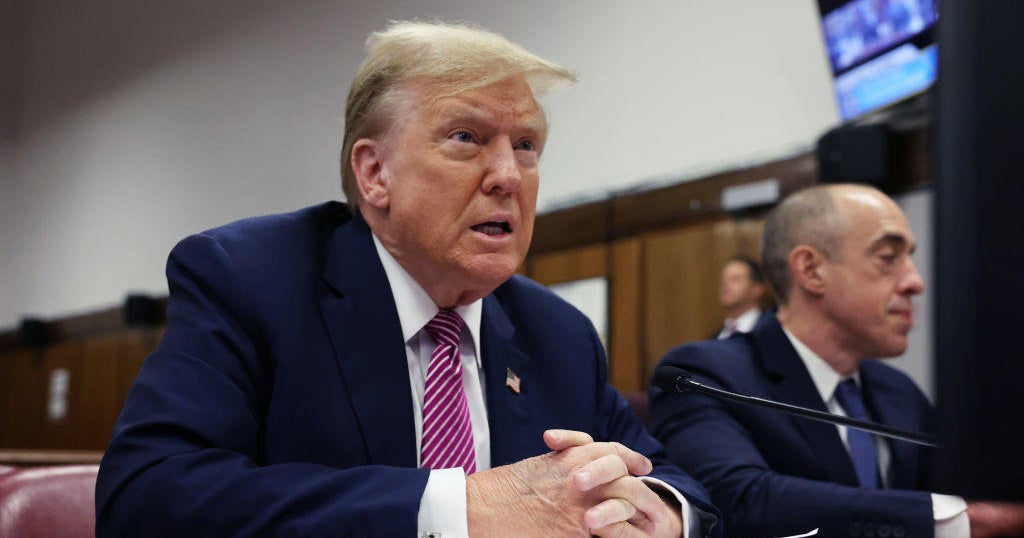ICYMI: Top takeaways from this week's "Face the Nation": U.S. prepares for apex of COVID-19
There are more than 312,000 confirmed coronavirus cases in the U.S. and more than 8,500 people have died, according to Johns Hopkins University.
Governors of more than 40 states have issued stay-at-home orders for residents, and on Friday, the Centers for Disease Control and Prevention advised Americans to voluntarily wear cloth or fabric masks in public to help slow the spread of the virus.
Members of the White House's Coronavirus Task Force have warned that the coming week is going to be a painful for many Americans, giving little confidence that the pandemic is under control.
Here's the big takeaways from Sunday's episode of "Face the Nation" with Margaret Brennan
1. FAUCI: America needs to prepare for a "bad week" ahead
- America needs to prepare for a "bad week," Dr Anthony Fauci, America's top infectious disease expert predicted. The NIH Director said infections will continue to escalate but he does see evidence that mitigation is having a positive effect.
- What Fauci said: "Also, we should hope that within a week, maybe a little bit more, we'll start to see a flattening out of the curve and coming down. The mitigation that we're talking about that you just mentioned is absolutely key to the success of that. So on the one hand, things are going to get bad and we need to be prepared for that. It is going to be shocking to some. It certainly is- is really disturbing to see that. But that's what's going to happen before it turns around. So we'll just buckle down, continue to mitigate, continue to do the physical separation because we got to get through this week that's coming up because it is going to be a bad week."
- The good news: Fauci said that the country could see a turnaround within seven to nine days.
Why this all matters: Fauci, the nation's top medical expert who has emerged as the face of the U.S.' fight against COVID-19, offered little comfort for Americans hoping to return to a sense of normal after weeks of stay-at-home orders. And as President Trump holds out hope for Americans to return back to business, Fauci warned that the coming week is going to be a painful for many Americans, and bucked the idea that the pandemic is under control.
"That would be a false statement," he said. "We are struggling to get it under control, and that's the issue that's at hand right now."
2. COVID-19 may make an unwanted return
- As long as this virus continues to spread around the globe, America will remain at risk until there is a vaccine, Fauci suggested.
- What Fauci said: "Unless we get this globally under control, there's a very good chance that it will assume a seasonal nature in the sense that even if we, and I hope it's not just if but when we get it down to the point where it really is at a very low level, we need to be prepared that since it unlikely will be completely eradicated from the planet, that as we get into next season, we may see the beginning of a resurgence. "
- "And that's the reason why we're pushing so hard and getting our preparedness much better than it was, but importantly, pushing on a vaccine and doing clinical trials for therapeutic interventions so that hopefully if in fact we do see that resurgence, we will have interventions that we did not have in the beginning of the situation that we're in right now."
- Why that matters: Without proper vaccine development and adoption of proper safety practices like social distancing, we can expect to see coronavirus back on our shores.
3. GOTTLIEB: We don't need a home run, we need a better toolbox
- Former FDA Commissioner Dr Scott Gottlieb said the most promising treatments right now are " antibody-based drugs where you basically develop an antibody that can directly target the viruses." Until there is a vaccine or treatment, it is dangerous for the U.S. to return to normal life.
- What Gottlieb said: "I think things are going to be permanently changed coming out of this until we get to a vaccine and we can fully vanquish this. We're not going to see a V-shaped recovery or a quick snapback absent the ability to get a highly effective drug in the hands of doctors that can mitigate the risk, either used as a prophylaxis to prevent infection in people who get exposed to this virus or treat people who get the virus and are likely at a high risk of a bad outcome. We can have that kind of drug by the summer and certainly by the fall. I don't see the kind of deliberate, industrial approach, all hands on deck approach, to trying to get that kind of therapeutic. And there are things that are promising right now that could be brought forward more quickly."
- He noted, however: "Absent that, this is going to be an 80 percent economy. There are things that are not coming back. People are not going to crowd into conferences."
- Why that matters: Until there is a vaccine to prevent infection in those who are exposed to the coronavirus or treat those who get it, it's dangerous for the U.S. to return to normal life too soon.
4. BULLARD: Staying at home an "investment" in national health
- James Bullard, President of the Federal Reserve Bank St. Louis, suggested that Americans should view staying at home as an investment in national health and expect some chaos when it comes to the roll-out of government rescue programs.
- What Bullard said: "I would push back against the idea of the economy or the job market being in freefall. We're asking people to stay home to invest in national health, and we're asking them to use the unemployment insurance program in order to get the transfers they need to be able to pay bills while they're at home, while they're not able to work because health authorities are trying to get the virus under control. Our estimates, which are available at our blog, St. Louis Fed on the economy blog, suggests the unemployment rate could go anywhere between 10 percent and 42 percent. The 32 percent number is a compromise in the middle."
- Why that matters: Bullard's assessment provides an optimistic outlook for an economy that appears less than positive. The economy lost 701,000 jobs by the middle of last month. The unemployment rate rose to 4.4%. At least 10 million people applied for jobless benefits in the last two weeks of March, overwhelming many states' unemployment offices.
Small businesses have been hit especially hard by the crisis, as they often have fewer resources to draw on during a slowdown, and many have been forced closed by public health measures.
5. Returning to life outside quarantine requires testing and surveillance
James Bullard, Dr. Fauci and Dr. Gottlieb all suggested that returning to life outside quarantine requires testing and surveillance or "contact tracing." But the U.S. does not yet have that capability or system.
What Bullard said: "The solution is universal testing. What you want is every single person to get tested every day. And then they would wear a badge like they would at a- after they voted or something like that to show that they've been tested. This would immediately sort out who's been infected and who hasn't been infected. That would help the health care sector. But it would also help the economy because we could interact with each other with a lot of confidence. "
What Gottlieb said: "We'll be able to identify cases when there are small outbreaks in the fall and use case-based intervention," he said. "It's basically isolating people with the infection and their close contacts."
Why that matters: A "massive surveillance system" as experts suggest would allow infections to be detected quickly and reduce the opportunities for widespread spread such as global community is seeing today.
Missed Sunday's episode? Click here to watch the show. "Face the Nation" airs Sunday mornings on CBS. Click here for local listings.




